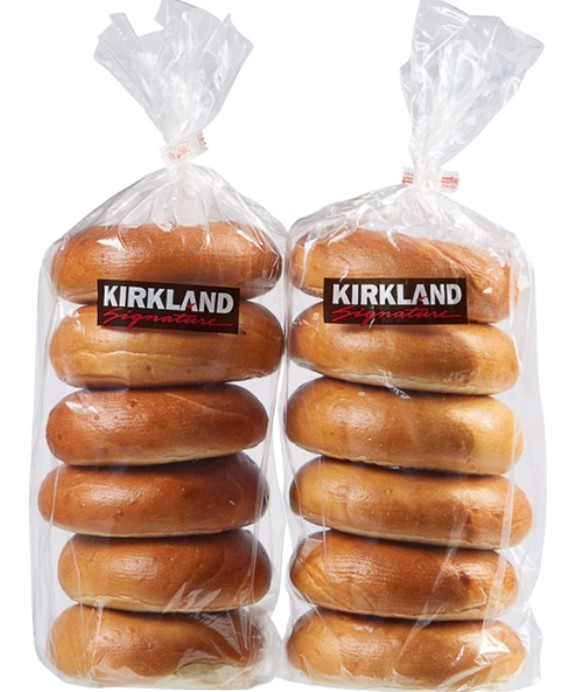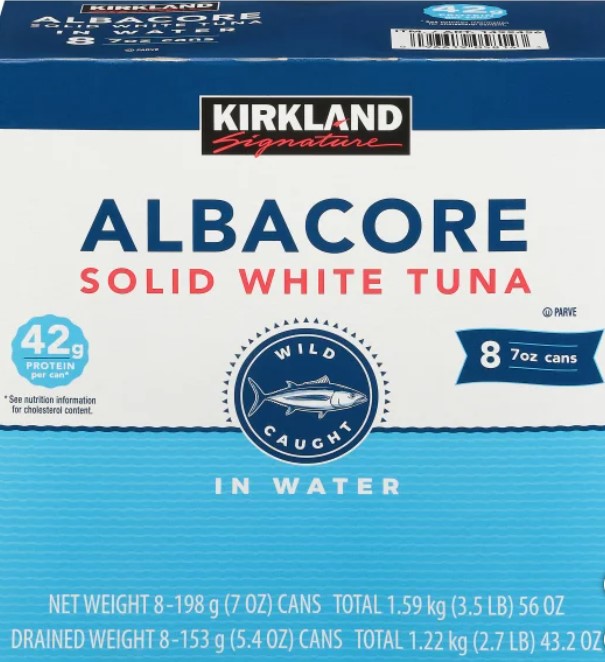
You’ve probably had your Costco membership for years and aren’t planning on canceling it anytime soon. The deals on bulk items are typically amazing, and Costco is known for carrying a lot of higher-quality products. But through your years of shopping, you might have noticed that some things are better left on the shelves. Here are five things you should avoid buying at the warehouse giant.
1. Bagels

Nutrition Facts:
Calories: 250 per bagel
Total Fat: 1g
Carbohydrates: 50g
Protein: 9g
Ingredients:
Enriched flour
Water
Salt
Yeast
Sugar
The giant packs of bagels might seem like a great deal, but unless you can go through 16 bagels in two to three days, you’ll probably end up with a bag of moldy, stale rounds. Sure, you can slice and freeze them, but the texture just isn’t the same afterward. And wouldn’t you rather save your freezer space for more premium products? It’s better to skip Costco’s bulk bagels and shop for a smaller quantity elsewhere. Or, if you’re up for it, try making your own—they’ll be fresh and chewy every time.
2. Seasonal Items

During the holidays, Costco’s massive packages of seasonal treats, like chocolate Easter eggs and Valentine’s candies, might catch your eye. However, because they carry higher-quality items, you’ll often pay a premium. For instance, their gingerbread house kits (or as Costco calls them, “gingerbread mansions”) can cost around $15.
But for just a few dollars, you can buy a kit from the dollar store that your kids will enjoy just as much. Even if you add some extra bulk candy to decorate, it’s still cheaper. Since these treats are usually more for fun than actual eating, the significant price difference just isn’t worth it.
3. Some Fresh Produce

Costco offers great deals on some fresh fruits and veggies, but for the most part, you’ll find them significantly more expensive than at your local supermarket. For example, a pint of raspberries typically costs $7 at Costco, compared to $4 at other stores—and they’re often even cheaper when they’re on sale.
Unless you’re feeding a crowd, it’s better to buy smaller quantities of produce elsewhere, where you can enjoy them at a lower price without the pressure to use them up quickly.
4. Canned Goods

When you compare prices, Costco’s canned goods aren’t always the bargain they seem. Large packs might work out to about the same price as what you’d find at a grocery store when not on sale, but you’re committing to a large quantity—and you’ll need the space to store them.
For example, Costco sells a 12-pack of canned tuna. While it might be slightly cheaper per can, that’s a lot of tuna to keep track of. Grocery store sales often offer similar prices or even better deals, allowing you to stock up in more manageable quantities.
5. Cereal

Costco dedicates an entire aisle to breakfast items, and giant boxes of cereal are a big part of it. But unless they’re running a special sale, you usually won’t save much by buying your cereal there. Grocery stores frequently have sales on cereal that can offer similar or even better prices. Plus, you can often score additional perks like free milk with your cereal purchase at traditional grocery stores.
Conclusion
You don’t need to give up your Costco membership, but knowing these pricing and quality nuances can help you avoid overpaying and over-buying. Diversifying your shopping experience by visiting a few stores is a smart way to meet your needs. Not only will you save money, but you’ll also discover new products and promotions, making your shopping trips more balanced and enjoyable.






